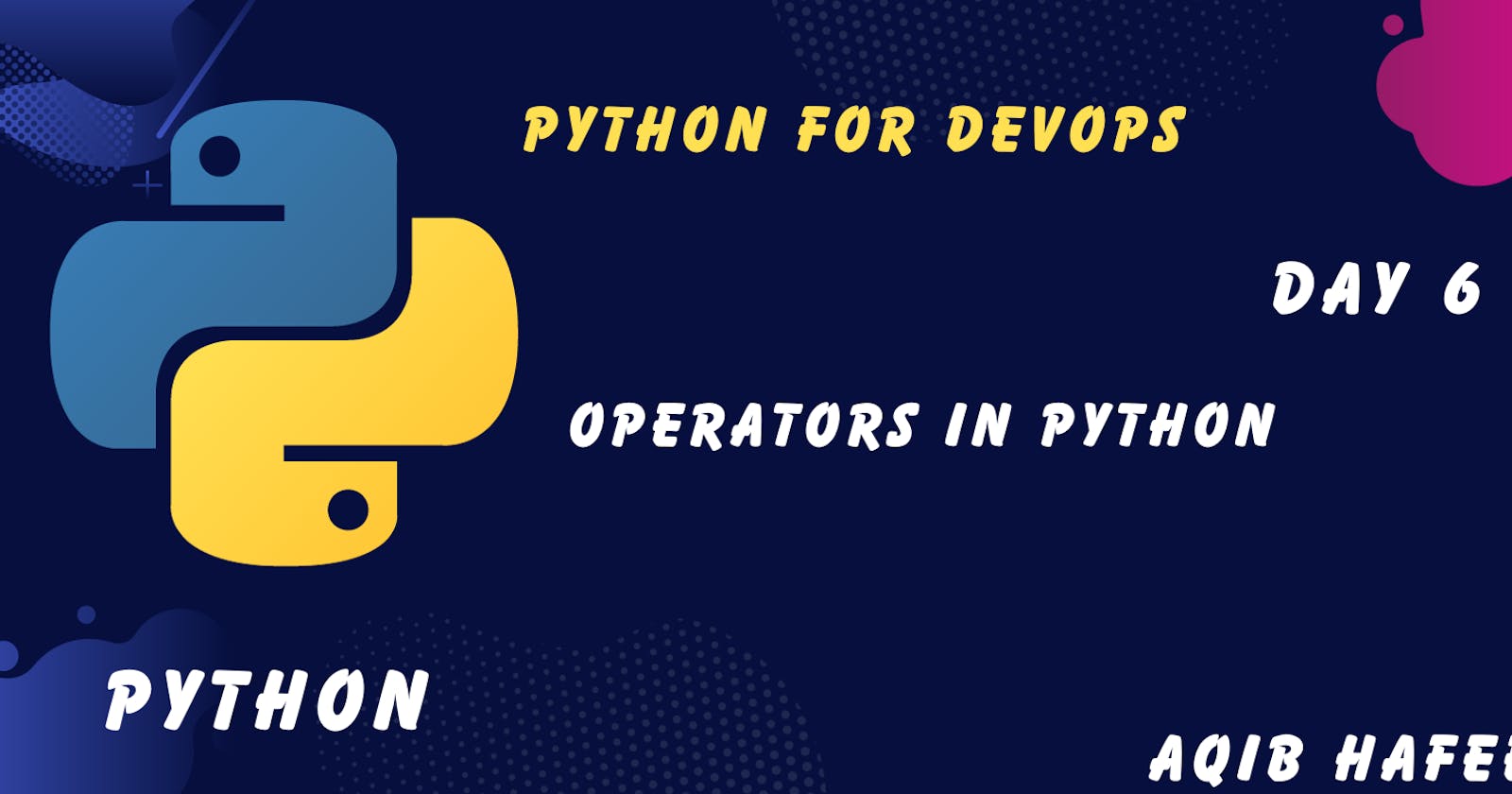
Introduction
Operators are fundamental building blocks in programming languages, and Python is no exception. In the realm of DevOps, understanding and effectively using operators can be incredibly valuable for tasks such as automation, configuration management, and monitoring. In this article, we will delve into the various types of operators in Python and explore their relevance in the world of DevOps.
What are Operators?
Operators in Python are symbols that allow you to perform operations on variables and values. They are the essential tools for manipulating data and making decisions within your code. Python supports a wide range of operators, which can be categorized into several main groups:
Arithmetic Operators
+(Addition)-(Subtraction)*(Multiplication)/(Division)%(Modulus)**(Exponentiation)//(Floor Division)
Comparison Operators
==(Equal)!=(Not Equal)<(Less Than)>(Greater Than)<=(Less Than or Equal To)>=(Greater Than or Equal To)
Logical Operators
and(Logical AND)or(Logical OR)not(Logical NOT)
Assignment Operators
=(Assignment)+=(Add and Assign)-=(Subtract and Assign)*=(Multiply and Assign)/=(Divide and Assign)
Identity Operators
is(Is)is not(Is Not)
Membership Operators
in(In)not in(Not In)
Bitwise Operators
&(Bitwise AND)|(Bitwise OR)^(Bitwise XOR)~(Bitwise NOT)<<(Left Shift)>>(Right Shift)
Practical Applications in DevOps
Now that we've covered the different types of operators, let's explore how each of them can be applied in DevOps scenarios:
1. Arithmetic Operators
Calculate resource utilization percentages.
Compute time differences for monitoring purposes.
Determine the size of disk partitions and available space.
2. Comparison Operators
Check if a server is up or down.
Evaluate the status of services and applications.
Compare versions of software packages for updates.
3. Logical Operators
Combine multiple conditions to decide whether to proceed with an automation task.
Implement access control rules based on user roles and permissions.
Create complex conditional statements for configuration management.
4. Assignment Operators
Store the results of API calls or command executions in variables.
Set environment variables for use in configuration scripts.
Update and modify configuration files.
5. Identity Operators
Verify if two objects reference the same resource or data.
Ensure the integrity of data structures when managing configurations.
6. Membership Operators
Check if a specific package or library is installed.
Determine if a user is part of a user group.
Validate if a required configuration setting exists in a configuration file.
7. Bitwise Operators (less common)
Perform low-level network configuration tasks, such as setting subnet masks.
Manipulate binary data in security-related operations.
Conclusion
In the realm of DevOps, operators in Python are essential tools for data manipulation, decision-making, and automation. Understanding how to use these operators effectively can simplify complex tasks, streamline automation workflows, and help you manage and monitor your infrastructure more efficiently. Whether you are working on configuration management, infrastructure as code, or monitoring and alerting, Python's operators are invaluable tools in your DevOps toolbox.
